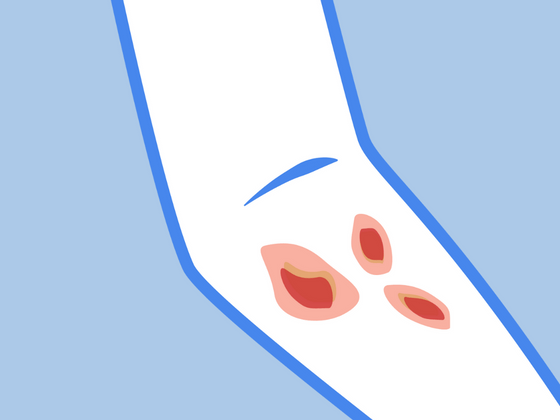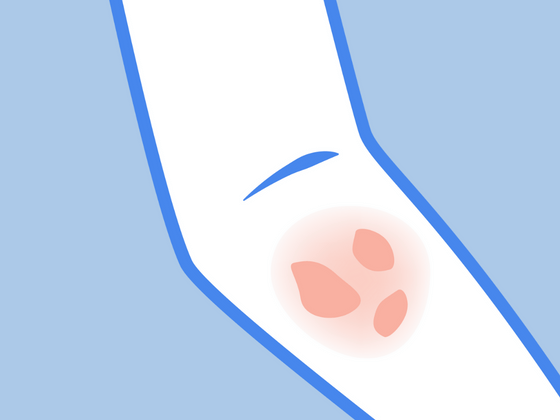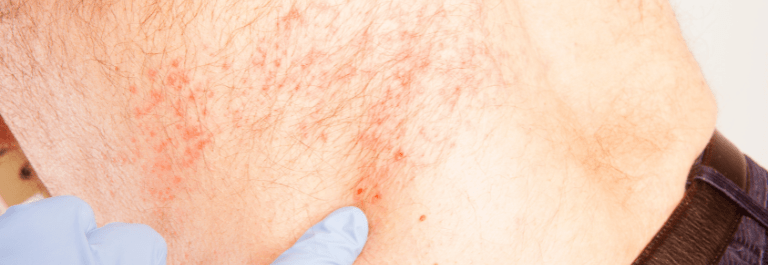If you have eczema, you may notice that symptoms may come and go. Perhaps you notice flare ups get bad in the winter or that you’re extra itchy during the warm, summer months. This begs the questions: is seasonal eczema a thing? Read on to find out!
Please keep in mind that although what we discuss in this post can relieve eczema, we are in no way medical professionals. If you’re experiencing severe eczema symptoms like an infection, it is best to seek medical advice immediately.
What is Eczema?
Eczema is a chronic condition that’s characterized by inflammation, redness, dryness, and itching. In severe cases, the skin can crack or bleed, which can make the skin more vulnerable to infection.
It's a common condition, affecting between 10-20% of the world population, including children who may need specialized eczema cream for babies. This itchy skin condition can have a big impact on a person's life, financially, emotionally, and professionally, and physically.
Although researchers aren't sure of the exact cause of eczema, it's believed to be linked to a combination of genetics and environmental factors. Common environmental triggers include pet fur, mold, ingredients found in skincare products, certain foods, contact with certain fabrics, harsh laundry products (consider switching to detergent for sensitive skin), sweat, stress, and extreme weather conditions.
Can Eczema be Seasonal?
Weather can have an affect on anyone’s skin but it can be particularly damaging to those with eczema. The reason is that healthy skin actually acts as a barrier to protect your skin. Those with eczema have a damaged skin barrier that makes the skin more susceptible to weather conditions. By leaking moisture, the skin is more likely to get dried out or become irritated by humidity and heat. In addition, seasonal changes such as pollen in the spring can act as an eczema trigger.
Eczema and the Weather
Many people report that their eczema gets worse during the cold winter months. This is likely because changing temperatures and harsh, cool air can suck the skin of its natural moisture. On the other hand, hot, humid weather can also be problematic for eczema-prone skin. Just imagine sweaty, sticky skin! Although a certain amount of sunlight and a dose of vitamin D can be beneficial to those with eczema, it can also be an eczema trigger.
Caring for your Eczema
It’s important to care for your eczema and adapt to the seasons accordingly. For example, during the winter, you will likely need to apply moisturizer more often to help combat the winter dryness. Here are some of our top eczema tips:
Keep the Skin Hydrated
Keep the skin moisturized by applying a natural moisturizer eczema cream like this Organic Manuka Skin Soothing Cream. This non-greasy formula is made with just 6 ingredients, making it as natural as can be. Rich in emollients, it’s sure to hydrate even the driest of skin.
Another great option is this beef tallow cream. Highly moisturizing, it provides natural itch relief, promotes healing and prevents scarring. An excellent choice for those with sensitive or allergy-prone skin, it’s the perfect addition to your paleo skin care routine.
Wear Eczema-Friendly Clothing
During the winter, certain fibers and rough fabrics like wool can trigger an eczema flare up. In the summer, sweat can ignite a negative reaction, making it important to wear soft, breathable clothing. No matter the weather, you should aim to avoid nylon, latex, rubber, and spandex.
Some of our favorite eczema clothing includes:
Long Sleeve Eczema Shirt - Adults and Kids
Remedywear™ Pants - Adults and Kids
Invest in a Humidifier
To protect your skin from dry air inside the house, it’s worth investing in a humidifier. This will help add moisture back into the air which will prevent your skin from becoming irritated.
Stay Hydrated
Whether it’s summer or winter, staying hydrated is an important part of keeping your body and skin healthy. For a glowing complexion, it’s recommended to drink at least 8 glasses of water per day and use gentle eczema soap during your daily cleansing routine.







